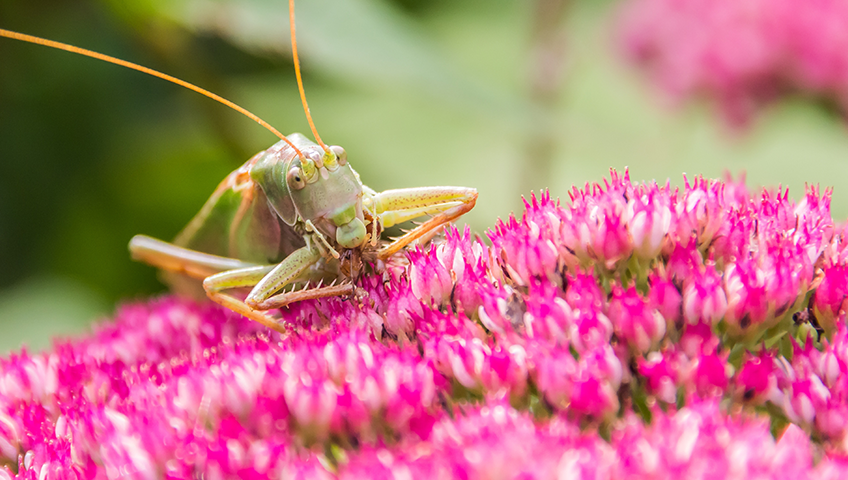
Apple Pest Control: San Antonio Insect Prevention
Insects are everywhere, and they’re surprisingly diverse when it comes to their diets! Whether they’re munching on plants, snacking on leftover crumbs or even eating other insects, each species has its own unique eating habits. Apple Pest Control understands the food sources and conditions that attract pests in San Antonio.
When you need assistance controlling ant populations or exterminating cockroaches in your home, our team is here to help! In this guide, we’ll explore common insect diets and explain how knowing their food preferences can help you keep them at bay.
How Do Insects Eat?
Insects have various ways of consuming food, depending on their mouthparts and the type of food they seek. Some critters — like ants — use their mandibles to chew. Other animals — like mosquitoes — use specialized mouthparts to pierce and suck fluids.
What Do Bugs Eat And Why Does This Information Matter?
Insects consume an array of foods. These foods can generally be grouped into categories like plants, decaying matter and other bugs. Here are the primary types of diets in the insect world:
- Herbivores — These insects feed on plants, leaves and wood. Examples include caterpillars, which munch on leaves, and termites, which break down wood fibers.
- Omnivores — Some insects eat a combination of plants, fungi and other insects. Cockroaches, for instance, will eat almost anything, from plant matter to garbage.
- Carnivores — This category includes insects that eat other insects. For example, praying mantises feed on smaller insects, helping control pest populations naturally.
Knowing what bugs eat can help you predict where they might show up in your home and yard. We’ll explore specific insect diets and how to prevent them from entering your home.
Common Foods For San Antonio Pests
Insects are driven by their search for food, water and shelter. Below is a look at the typical diets of some household pests in San Antonio.
1. Ants: The Kitchen Crusaders
Ants are one of the most common household pests, and they love sugary substances. They’re often found foraging in kitchens, where they feast on anything from spilled juice to sweet pantry items. Ants are also attracted to proteins and greasy foods. It’s essential to keep countertops clean and food stored securely to prevent them from gathering indoors.
2. Cockroaches: The Ultimate Survivalists
Cockroaches are omnivores that are especially drawn to human food and trash. They feed on starches, grease, sweets and paper. Because of their broad diet, these critters can survive almost anywhere. They’re especially difficult to control if food sources are left out.
3. Spiders: Nature’s Natural Form Of Pest Control
Spiders may not be insects themselves, but they do consume them! Spiders typically feed on flies, mosquitoes and other small bugs. They’re attracted to areas with plenty of insects. Managing other pests can help keep spider populations down as well.
4. Flies: The Scrap Scavengers
Flies are drawn to decaying food, garbage and waste. They play a role in breaking down organic matter, but their attraction to waste can make them unwanted guests. Keeping trash tightly sealed and maintaining proper sanitation can help reduce fly problems.
How To Use Your Knowledge Of Insect Diets To Prevent Infestations
Each insect’s diet influences where it’s likely to be found. By knowing what bugs eat and taking steps to eliminate those food sources, you can effectively reduce the likelihood of an infestation. Here are some practical tips to keep pests from finding your home attractive:
- Clean up crumbs and sugary spills immediately, especially in dining areas.
- Store food in air-tight containers to keep it out of reach of bugs.
- Dispose of garbage regularly and keep trash cans tightly closed.
- Remove standing water around sinks, showers and drains to deter water-seeking pests.
By managing food sources and keeping your home clean, you reduce the attractants that bring bugs indoors.
Trust Apple Pest Control For Pest Prevention And Removal
At Apple Pest Control, we provide expert pest control solutions in San Antonio, TX. Our team understands insect behaviors and is equipped to handle all types of insect-related problems. Contact us today to learn more about our services and keep your home free from unwanted visitors!




